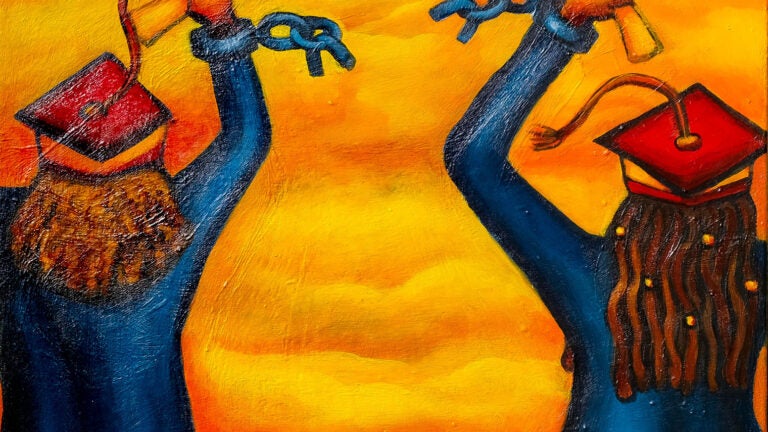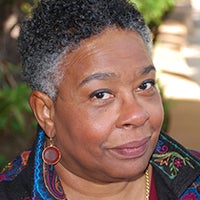
‘African Americans and the Vote’ is the theme for Black History Month in 2020
February is Black History Month, when Americans reflect on the significant roles that African Americans have played in United States history. This year’s theme, ‘African Americans and the Vote,’ prompts Francille Rusan Wilson and Oneka LaBennett of USC Dornsife College of Letters, Arts and Sciences to comment on voter suppression and the need for advocacy for black Americans beyond Black History Month.
What the vote means to African Americans
 Francille Rusan Wilson, associate professor of American studies and ethnicity, history, and gender and sexuality studies, studies the intersections between black labor movements, black social scientists, and black women’s history during the Jim Crow era. She also is the immediate past president of the Association of Black Women Historians.
Francille Rusan Wilson, associate professor of American studies and ethnicity, history, and gender and sexuality studies, studies the intersections between black labor movements, black social scientists, and black women’s history during the Jim Crow era. She also is the immediate past president of the Association of Black Women Historians.
Wilson notes the timeliness of this year’s theme.
“Black History Month’s theme in 2020, ‘African Americans and the Vote,’ recognizes the long and ongoing struggle of black Americans to exercise their rights as citizens, including voting, testifying in court and serving on juries,” she said. “It also marks the sesquicentennial of the 15th Amendment, the centennial of the 19th Amendment and 55 years since the passage of the Voting Rights Act.
“Today, the theme is particularly timely as African Americans face voter suppression laws in more than 30 states that are aimed at black voters as well as women, the poor, rural and elderly voters. Black History Month was launched nationwide in 1926 as Negro History Week by Dr. Carter G. Woodson, founder of the Association for the Study of African American Life and History (ASALH), which continues to set the annual black history theme. In Los Angeles, the local branch of ASALH, Our Authors Study Club, has led the city’s official recognition of the black history month since the 1950s.”
Who’s paying lip service to black history?
 Oneka LaBennett, associate professor of American studies and ethnicity, is author of She’s Mad Real: Popular Culture and West Indian Girls in Brooklyn and an editor of Racial Formation in the Twenty-First Century. Elle Magazine ranked her “Women in Hip Hop” course among the top 10 “College Classes that Give Us Hope for the Next Generation.”
Oneka LaBennett, associate professor of American studies and ethnicity, is author of She’s Mad Real: Popular Culture and West Indian Girls in Brooklyn and an editor of Racial Formation in the Twenty-First Century. Elle Magazine ranked her “Women in Hip Hop” course among the top 10 “College Classes that Give Us Hope for the Next Generation.”
LaBenett marks the need for extending advocacy beyond February.
“For those of us in the trenches of black studies and social justice, every month is Black History Month. However, every year folks who are not routinely attuned to the socio-political issues African Americans face can come off as paying lip service during February,” she said.
“For example, the month opened with President Trump and Democratic presidential candidate Michael Bloomberg airing Super Bowl ads featuring black women in a transparent attempt to attract this coveted and significant voting bloc. The criticism their ads faced perhaps signals a broader lesson not only for those seeking the presidency, but for all voicing support for black issues during the month of February: True advocacy for African Americans can neither be enacted in 60-second commercials nor within the confines of the year’s shortest month.”
See the USC Press Room for more commentary >>